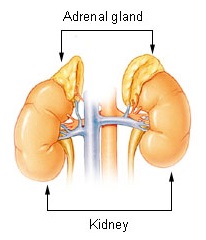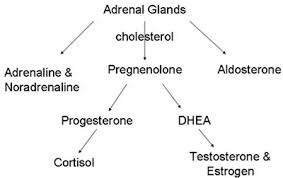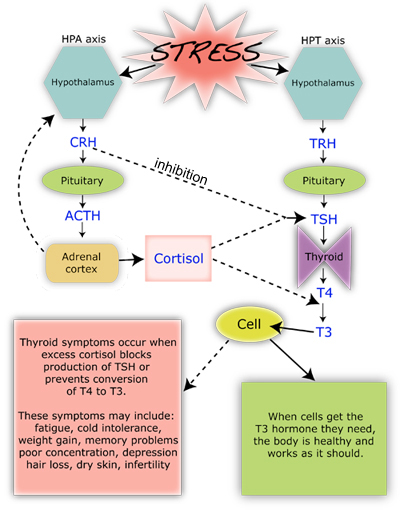What Is Adrenal Fatigue?
The adrenals, two walnut-sized glands that sit on top the kidneys, are your “lifesaving” organs because they control your body’s hormones and help you survive stressful situations.


They act as control organs for the fight-or-flight response, engaging the sympathetic nervous system and withdrawing the parasympathetic nervous system.

They also secrete many of our most important hormones, including: pregnenolone, adrenalin (or epinephrine), oestrogen, progesterone, testosterone, DHEA and cortisol.

Cortisol has many life-giving tasks, which include:
– prepare your body for survival in stressful situations
– metabolize carbohydrates, proteins and fats into energy
– slow the immune system’s inflammatory response
– regulate the balance of insulin in breaking down sugar for energy
– maintain your cardiovascular health and blood pressure
Cortisol becomes the “stress” hormone when levels remain too high, which it does under chronic stress. The human body was designed to respond effectively to stress and then have periods of rest in between. Unfortunately, our modern-day society is so full of constant stressors that we are no longer having that time to rest.
When your adrenals are constantly stressed, this sets off an autoimmune, inflammatory response throughout your entire body. The hypothalamus-pituitary-adrenal (HPA-axis) feedback loop regulates the secretion of cortisol. All of your organs and your immunity are impacted negatively by the resulting constant assault of cortisol.
The second adrenal hormone of importance that declines during periods of stress is DHEA. DHEA helps regulate metabolism in addition to other actions through conversion into other potent hormones such as oestrogen, progesterone and testosterone. A deficiency of DHEA can result in a hormonal cascade effect leading to deficiency of these hormones, producing problems such as PMS, menopause, andropause and hypothyroidism.
Under constant chronic stress, the sympathetic nervous system also becomes over stimulated, due to excessive adrenaline release.
To complicate things further, adrenal fatigue also triggers thyroid imbalances since the thyroid gland and adrenal glands work hand in hand regulating metabolism and energy production.

During periods of stress when the adrenal function decreases, the thyroid responds by producing more thyroid hormones in order to overcompensate for under active adrenals. This produces typical “wired but tired” symptoms.
As time progresses, the thyroid gland also eventually burns out producing less thyroid hormones and leads to hypothyroidism, which further exacerbates fatigue and exhaustion.
